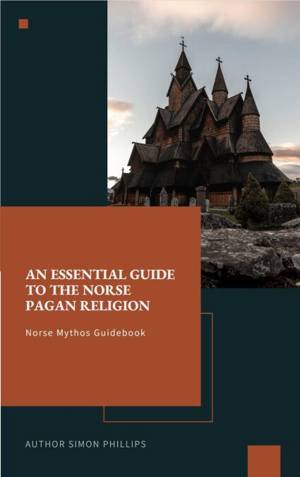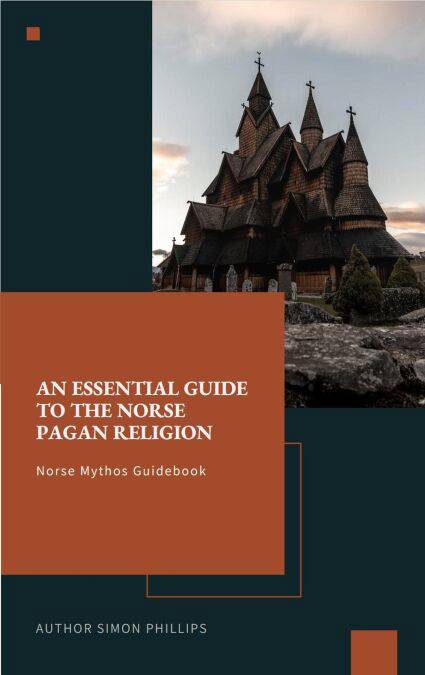
- Afhalen na 1 uur in een winkel met voorraad
- Gratis thuislevering in België
- Ruim aanbod met 7 miljoen producten
- Afhalen na 1 uur in een winkel met voorraad
- Gratis thuislevering in België
- Ruim aanbod met 7 miljoen producten
An Essential Guide to the Norse Pagan Religion: Norse Mythos Guidebook E-BOOK
Simon PhillipsOmschrijving
Summary
The text explores the significance of Thor, Freyr, Freya, Loki, and the Vanir in Norse mythology, emphasizing their roles as symbols of strength, fertility, and the balance between order and chaos. Thor is portrayed as a protector of Midgard who embodies courage and loyalty, while Freyr and Freya represent fertility and abundance, linking the divine to the earth. Loki's complex nature challenges conventional notions of good and evil, highlighting the necessity of chaos in the cosmic order. The Vanir gods emphasize the interconnection between humanity and nature, while the creation myth of Ymir illustrates the ongoing struggle between order and chaos. The text also discusses the evolution of runes, their cultural significance, and how modern Norse Paganism incorporates these ancient symbols into contemporary practice. Overall, it showcases the enduring relevance of Norse mythology and its figures in both historical and modern contexts.
Key Insights
Thor serves as a symbol of strength and protection, ensuring prosperity for Midgard and its inhabitants. Freyr and Freya embody fertility and abundance, representing the interconnectedness between the divine and the natural world. Loki's role as a trickster highlights the balance of chaos and order within Norse cosmology. The Vanir gods represent the generative forces of life, emphasizing the importance of nature in Norse mythology. The evolution of runes reflects cultural and linguistic changes, demonstrating their enduring significance in modern spiritual practices.Frequently Asked Questions
What is Thor's primary role in Norse mythology?
Thor is primarily seen as a protector of Midgard, embodying strength, courage, and loyalty. He defends against chaotic forces and ensures the prosperity of the land and its people.
How do Freyr and Freya contribute to Norse beliefs?
Freyr and Freya symbolize fertility and abundance, representing the forces of nature and ensuring the vitality of life. They highlight the interconnectedness of gods and earthly existence.
What is the significance of Loki within the Norse pantheon?
Loki represents the complexities of good and evil, serving as a catalyst for change and embodying the unpredictable nature of life, challenging the established order.
How have runes evolved in modern Norse Paganism?
Runes have transformed from a writing system into tools for spiritual guidance and introspection, reflecting cultural shifts and personal connections to the Norse cosmos.
Specificaties
Betrokkenen
- Auteur(s):
- Uitgeverij:
Inhoud
- Taal:
- Engels
Eigenschappen
- Productcode (EAN):
- 9798230447948
- Verschijningsdatum:
- 28/12/2024
- Uitvoering:
- E-book
- Formaat:
- ePub

Alleen bij Standaard Boekhandel
Beoordelingen
We publiceren alleen reviews die voldoen aan de voorwaarden voor reviews. Bekijk onze voorwaarden voor reviews.












